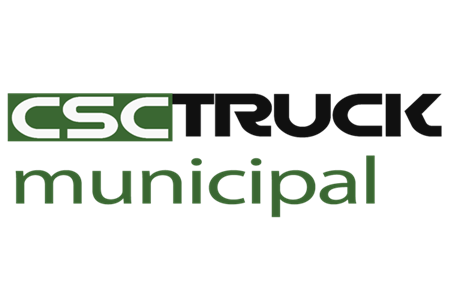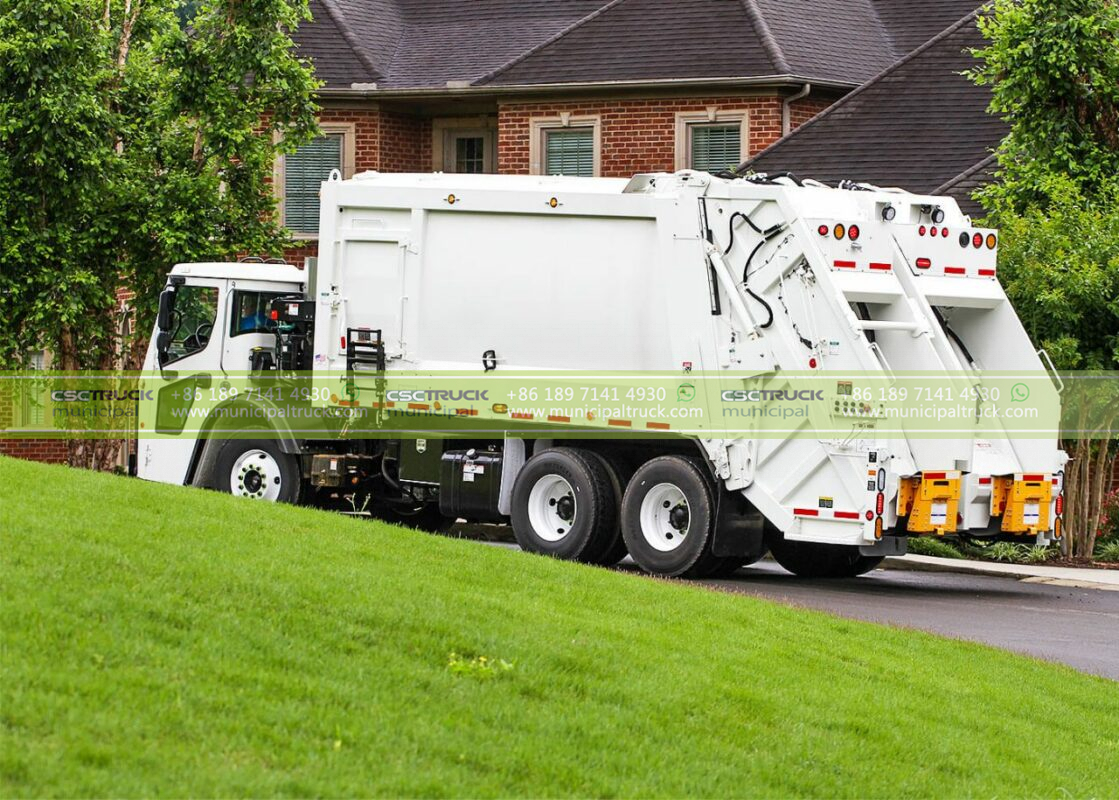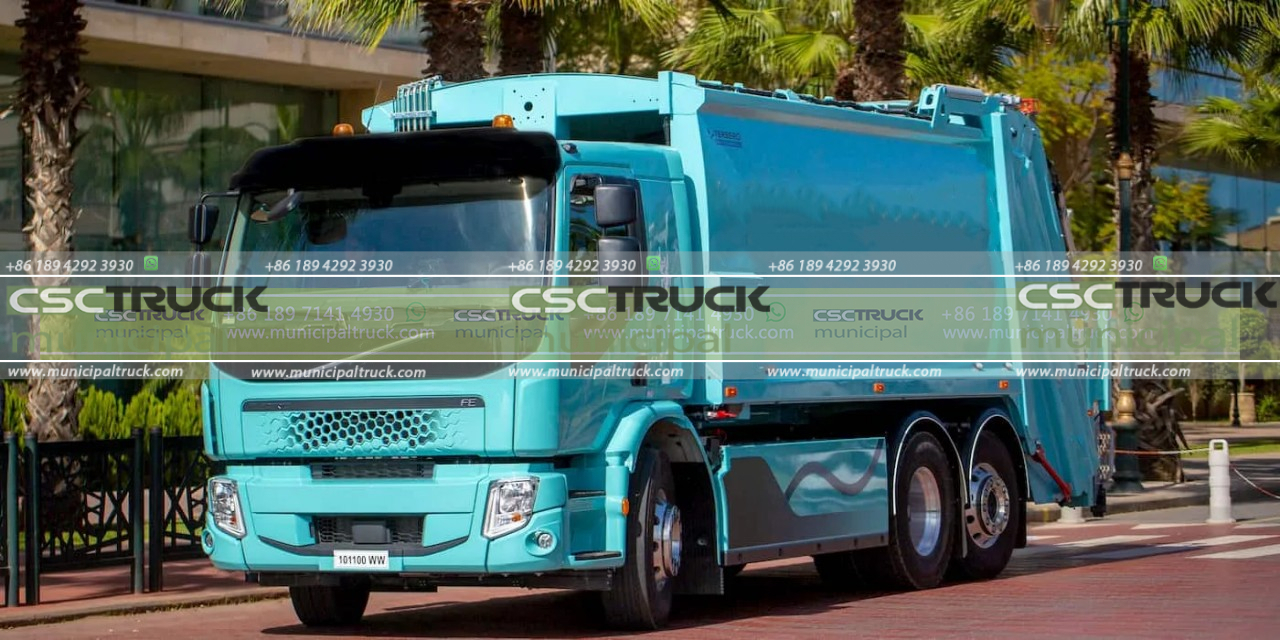In the intricate tapestry of urban infrastructure, few components are as vital and yet as easily overlooked as waste collection systems. The familiar sight of garbage trucks navigating through streets, their hydraulic arms lifting and emptying bins, forms an essential part of modern urban life. Among these waste collection workhorses, the rear loader garbage truck stands out as a common and crucial tool for keeping our cities clean and healthy. However, like any intricate machinery, these trucks require meticulous and regular maintenance to ensure their reliability and efficiency. This article delves into the realm of rear loader garbage truck upkeep, highlighting the essential maintenance practices that keep waste collection running smoothly.
The Backbone of Waste Management: Rear Loader Garbage Trucks
Rear loader garbage trucks have emerged as the backbone of urban waste management due to their efficiency and versatility. With their distinctive design featuring a hydraulic lifting mechanism at the rear, these trucks enable collection crews to swiftly and safely pick up and empty waste containers into the truck’s rear hopper. This design minimizes the need for manual labor and maximizes the speed at which waste collection can take place.
The Importance of Regular Maintenance
While these trucks are built to withstand the rigors of daily waste collection, the demanding nature of their work takes a toll on their components. Regular maintenance is not just a matter of extending the vehicle’s lifespan; it’s a crucial element in ensuring the safety of the crew, the efficiency of waste collection routes, and the reduction of downtime due to unexpected breakdowns.
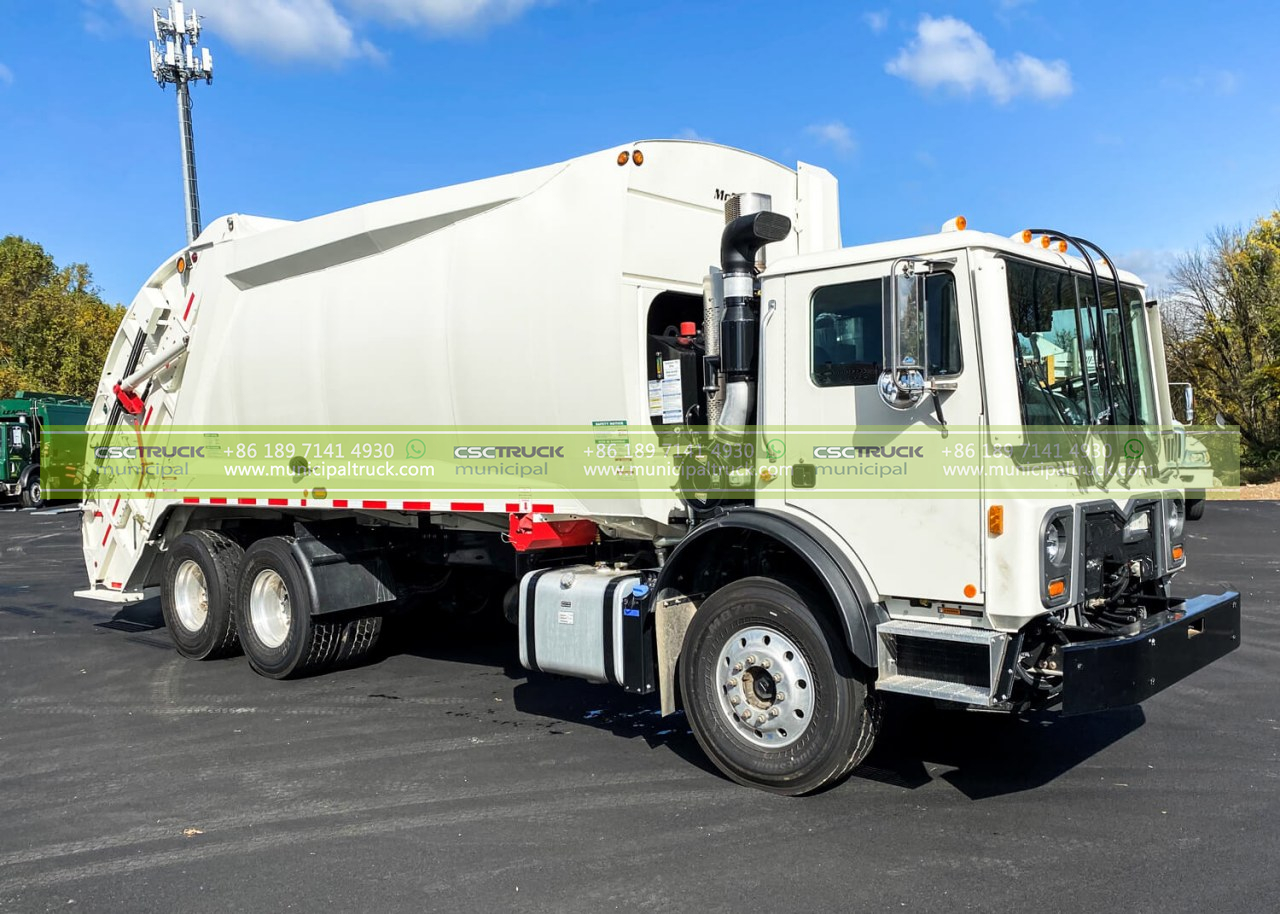
Key Maintenance Practices
1. Hydraulic System Inspection and Servicing: The hydraulic lifting mechanism is the heart of a rear loader garbage truck. Regularly inspecting hydraulic lines, cylinders, and pumps for leaks, wear, and proper functionality is paramount. Hydraulic fluid levels should be regularly checked and topped off, and any signs of degradation or malfunction should be addressed promptly.
2. Chassis and Body Maintenance: The truck’s chassis and body are subjected to constant stress and exposure to various weather conditions. Rust and corrosion can compromise structural integrity, leading to safety hazards and reduced efficiency. Regular cleaning, rust prevention treatments, and body repairs are essential to maintain the truck’s robustness.
3. Brake and Tire Checks: Given the stop-and-go nature of waste collection routes, brakes, and tires are subjected to substantial wear. Regular brake inspections and replacements, along with tire pressure checks and rotations, ensure optimal stopping power and maneuverability.
4. Electrical System: The truck’s electrical system controls various components, from the hydraulic lift to the lights and indicators. Wiring, switches, and connectors should be inspected to prevent malfunctions that could impede operations or compromise safety.
5. Fluid Changes: Routine fluid changes, including engine oil, transmission fluid, and coolant, keep the truck’s internal systems running smoothly. Neglecting fluid changes can lead to overheating, decreased fuel efficiency, and even engine failure.
6. Preventive Maintenance Schedule: Establishing a comprehensive preventive maintenance schedule is vital. Regular check-ups, lubrication, and replacements based on manufacturer recommendations help catch potential issues before they escalate into major problems.
7. Driver Training: A well-trained driver can significantly contribute to the truck’s longevity through proper operating techniques. Training drivers to handle the truck with care, avoid sudden movements, and follow recommended procedures can minimize wear and tear.
8. Record-Keeping: Maintaining detailed records of maintenance tasks, repairs, and inspections helps in tracking the truck’s performance over time. This data can highlight trends, identify recurring issues, and guide decision-making for replacements or upgrades.
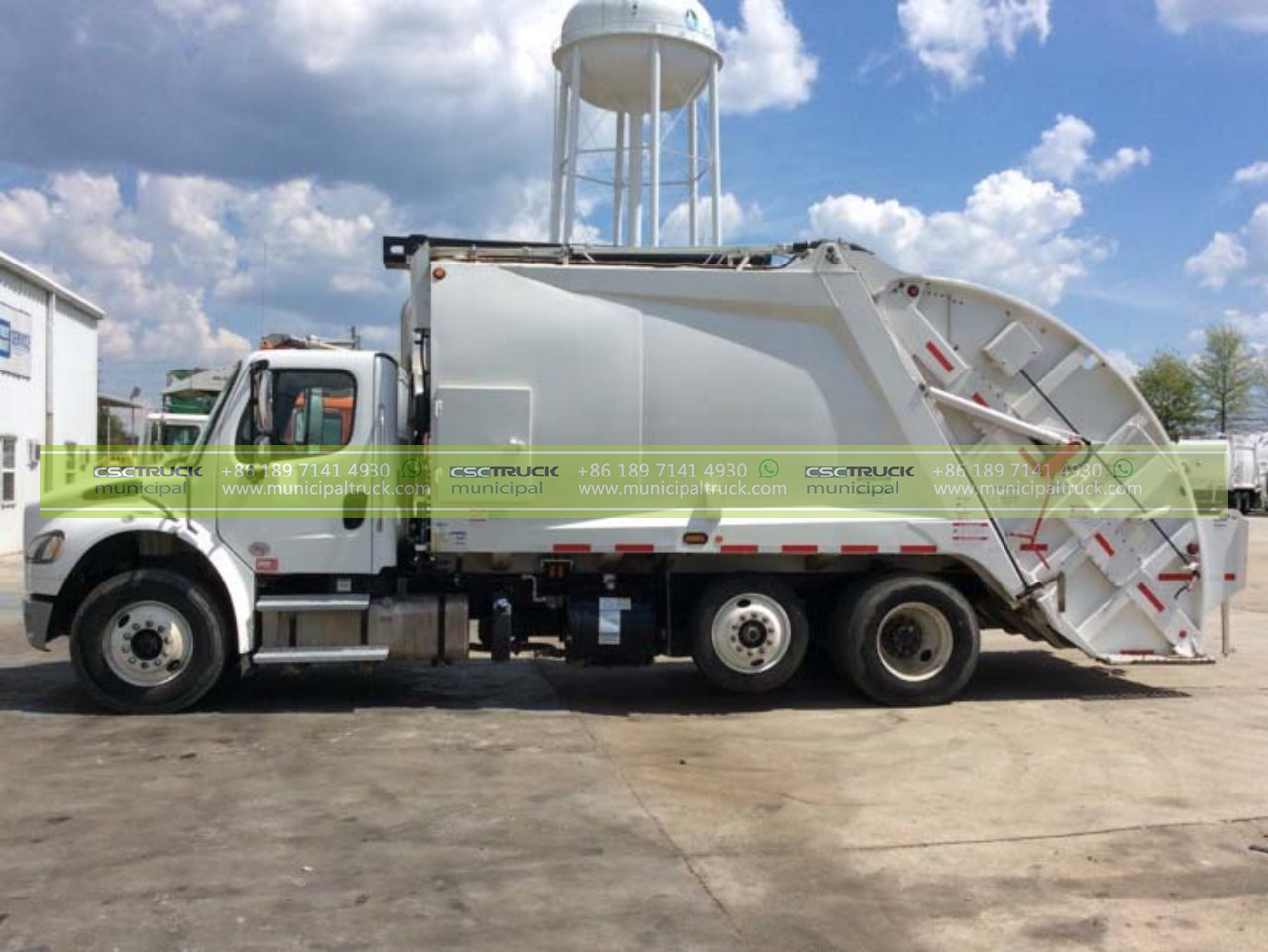
The Cost of Neglect
Neglecting regular maintenance not only increases the risk of breakdowns but also results in higher costs in the long run. Emergency repairs and downtime disrupt waste collection schedules, leading to overflowing bins and unsightly streets. Moreover, repairs performed under duress are often more expensive than planned maintenance, as rush orders and expedited parts procurement can inflate costs.
Sustainability and Environmental Impact
Proper maintenance of rear loader garbage trucks aligns with broader sustainability goals. Efficiently running trucks contribute to optimized waste collection routes, reducing fuel consumption and emissions. Additionally, a well-maintained fleet reduces the need for premature replacements, decreasing the environmental impact of manufacturing new vehicles.
Embracing Technological Advancements
As the world continues to advance technologically, the field of waste management is not left behind. Innovations are emerging that further enhance the maintenance and operation of rear-loader garbage trucks. Telematics, for instance, allows real-time monitoring of truck performance, enabling maintenance teams to receive alerts about potential issues before they escalate. This proactive approach not only reduces downtime but also maximizes the lifespan of the vehicle’s components.
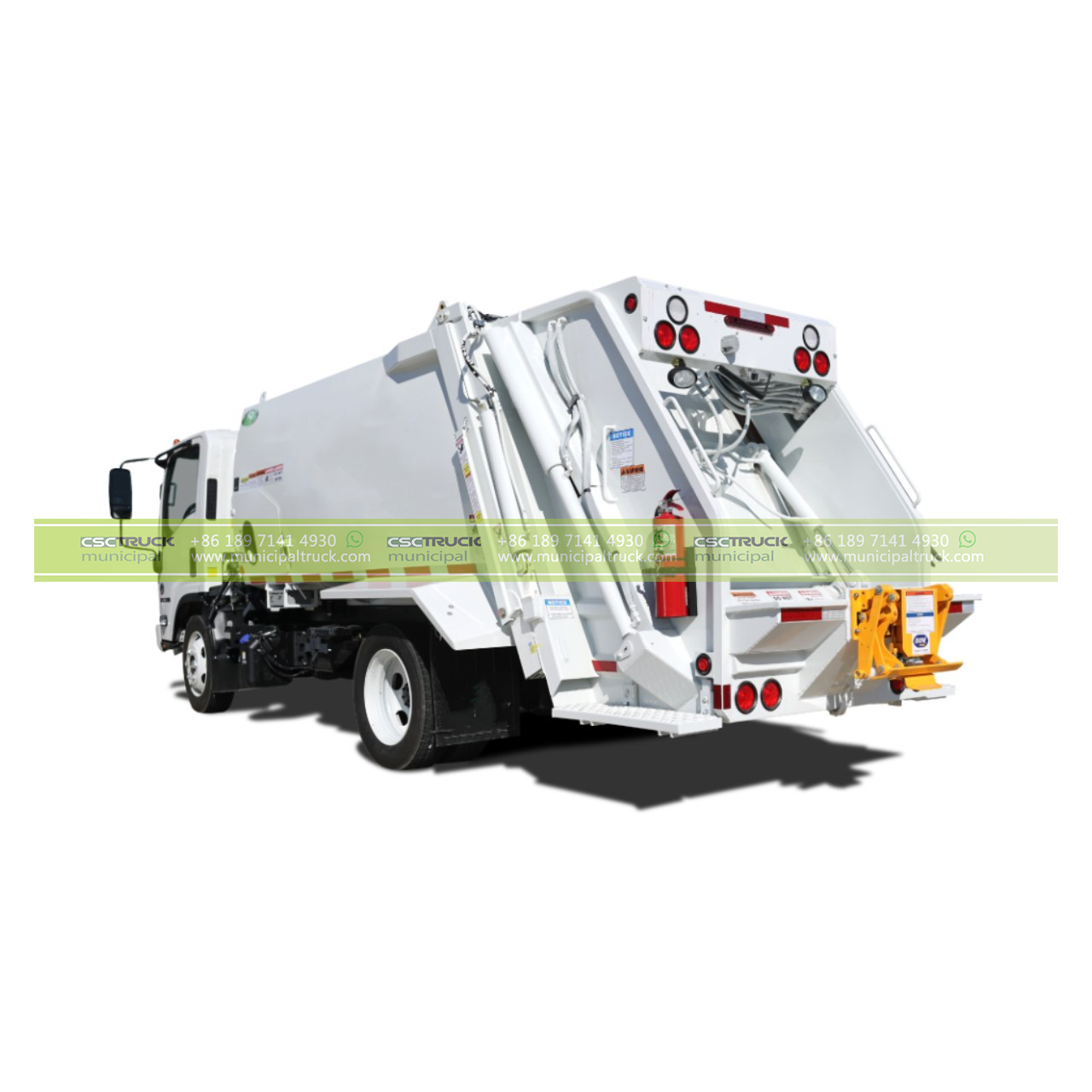
Collaboration and Knowledge Sharing
In the realm of waste management, collaboration, and knowledge sharing play a significant role in refining maintenance practices. Municipalities, waste management companies, and manufacturers can work together to develop best practices, share insights, and address common challenges. Regular forums, workshops, and training sessions can contribute to a collective effort to maintain an efficient and sustainable waste collection fleet.
Addressing Environmental Concerns
Beyond operational efficiency, proper maintenance of rear loader garbage trucks can contribute to minimizing the environmental footprint of waste collection. Regularly maintained trucks operate more efficiently, consuming less fuel and emitting fewer pollutants. This reduction in emissions aligns with global efforts to combat air pollution and mitigate the impact of climate change.
Public Awareness and Appreciation
The general public’s awareness of the significance of waste collection maintenance is crucial. Many might not realize that the timely removal of waste prevents the spread of disease, minimizes rodent infestations, and ensures a clean and pleasant urban environment. Educating residents about the importance of proper waste disposal and the efforts put into maintaining waste collection systems can foster a sense of community responsibility and appreciation for those who operate these essential services.
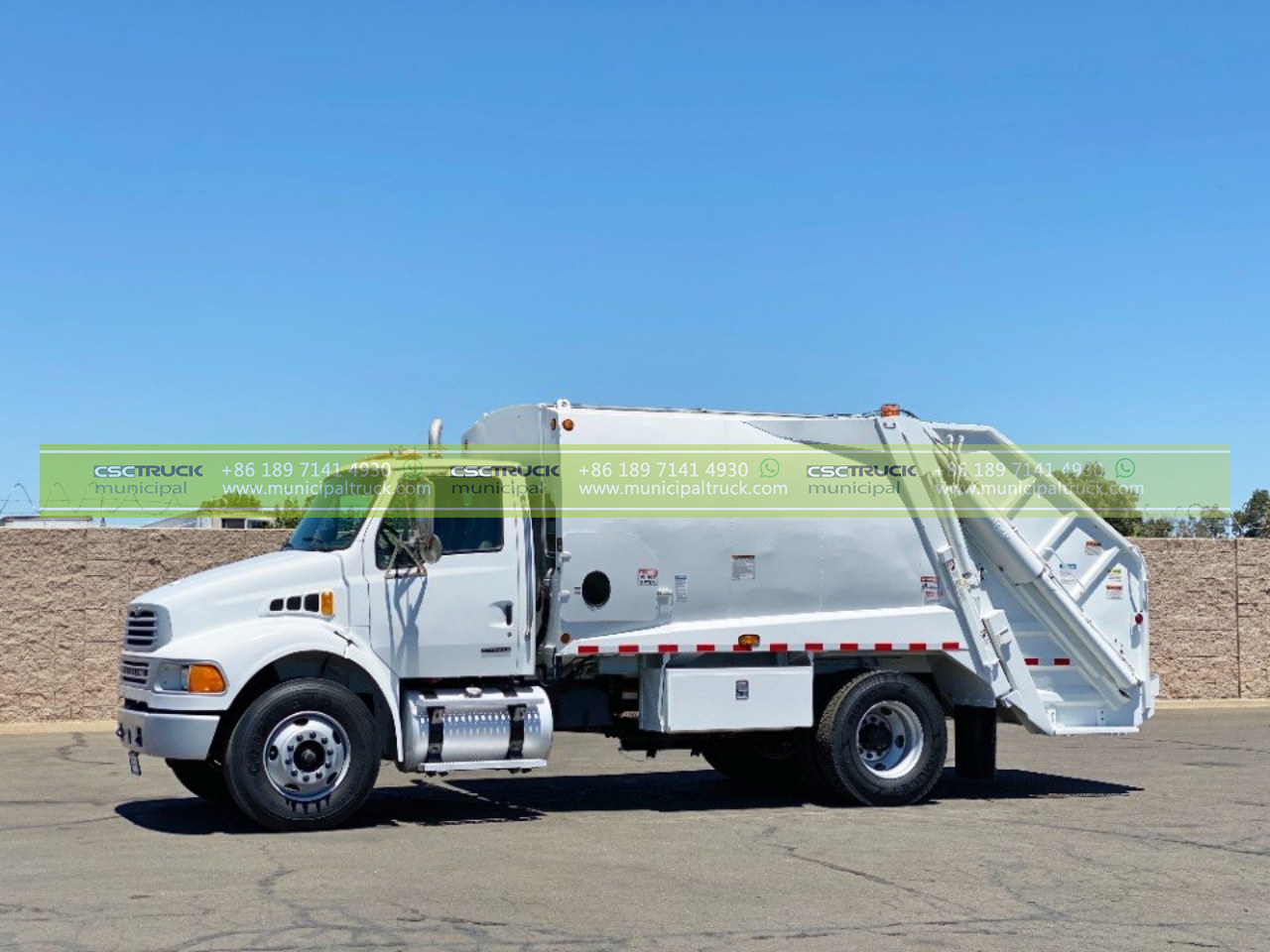
Challenges and Future Prospects
Despite the advancements and efforts in maintaining rear-loader garbage trucks, challenges persist. Budget constraints, for instance, can lead to deferred maintenance or inadequate resources for repairs. Moreover, as waste management systems evolve, adapting maintenance practices to accommodate newer technologies and alternative fuels can pose challenges. The transition to electric or hybrid garbage trucks, for instance, requires a different set of maintenance considerations due to their unique components and power systems.
Looking ahead, the field of waste collection maintenance is likely to witness further integration of digital technologies, enhanced diagnostics, and predictive maintenance algorithms. These innovations could revolutionize how maintenance tasks are planned and executed, minimizing disruptions and optimizing resource allocation.
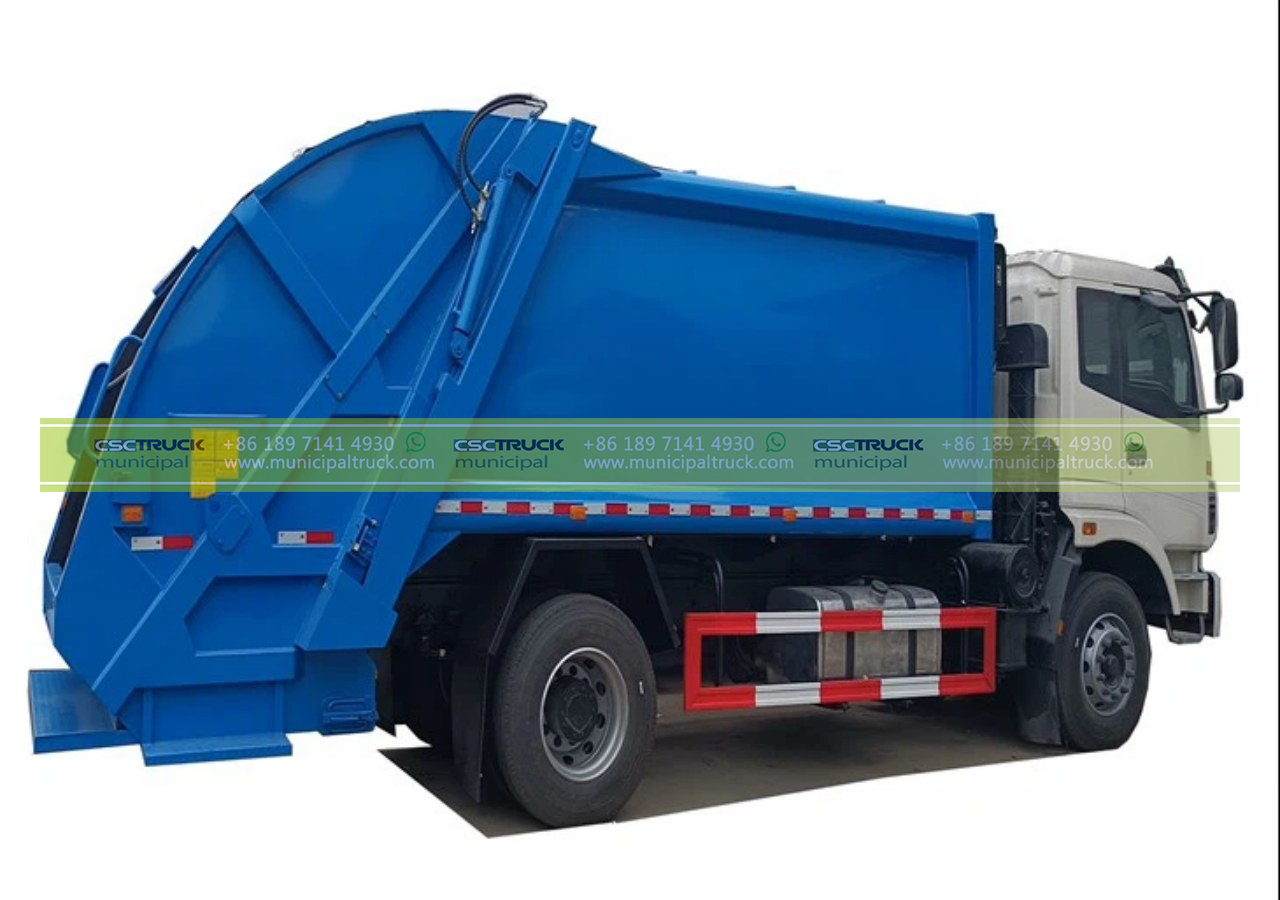
A Call to Action
In the grand narrative of urban development, the role of rear-loader garbage trucks is one of silent efficiency, a role that often goes unnoticed until something goes wrong. However, recognizing the critical nature of these vehicles and the importance of their upkeep is imperative for the well-being of our cities and the people who inhabit them.
Municipal authorities, waste management companies, and citizens alike have a stake in this endeavor. By prioritizing regular maintenance, investing in training and technological integration, and fostering a culture of environmental responsibility, we can ensure that our waste collection systems not only function flawlessly but also contribute positively to the overall health and sustainability of our urban environments.
In the end, rear loader garbage truck upkeep is not just about maintaining machines; it’s about upholding the integrity of our communities. As these machines continue to work quietly in the background, it’s time to shine a spotlight on their importance and ensure that they receive the care and attention they deserve.
Contact us for this municipal truck or similar trucks: [email protected] Call us or What's APP us: +86 189 4292 3930
